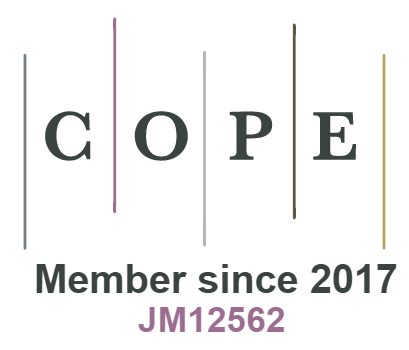Quantum Computing in High Frequency Trading and Fraud Detection
DOI:
https://doi.org/10.18034/ei.v9i2.549Keywords:
Quantum Computing, Qubits, Fraud Detection, Atom, EntanglementAbstract
‘Quantum Computing in high-frequency trading and fraud detection is an analysis of quantum computing and how it can be used by the different industries especially finance. It is an evolution of computing from the traditional computing method. Quantum computing is a process that is concentrated on creating systems and technology based on quantum theory rules. Quantum theory describes the energy on atomic and subatomic levels. Quantum computing uses quantum bits (qubits) which are more advanced than the traditional bits used by traditional computers. This article focuses on deploying quantum computers in solving problems that cannot be efficiently solved using traditional computers. In the finance sector, such as banking, insurance, and high-frequency trading, quantum computers can help optimize service by providing targeting and predictive analytics to reduce risk, provide personalized customer service, and provide the needed security framework against fraud.
Downloads
References
Ahmed, A. A. A., Aljarbouh, A., Donepudi, P. K., & Choi, M. S. (2021a). Detecting Fake News using Machine Learning: A Systematic Literature Review. Psychology and Education, 58(1), 1932–1939. https://zenodo.org/record/4494366
Ahmed, A. A. A., Donepudi, P. K., & Asadullah, A. B. M. (2020). Artificial Intelligence in Clinical Genomics and Healthcare. European Journal of Molecular & Clinical Medicine, 7(11), 1194-1202, https://ejmcm.com/?_action=article&au=24014
Ahmed, A. A. A., Paruchuri, H., Vadlamudi, S., & Ganapathy, A. (2021b). Cryptography in Financial Markets: Potential Channels for Future Financial Stability. Academy of Accounting and Financial Studies Journal, 25(4), 1–9. https://doi.org/10.5281/zenodo.4774829
Asadullah, A., Juhdi, N. B., Islam, M. N., Ahmed, A. A. A., & Abdullah, A. (2019). The Effect of Reinforcement and Punishment on Employee Performance. ABC Journal of Advanced Research, 8(2), 47-58. https://doi.org/10.18034/abcjar.v8i2.87
Azad, M. M., Ganapathy, A., Vadlamudi, S., Paruchuri, H. (2021). Medical Diagnosis using Deep Learning Techniques: A Research Survey. Annals of the Romanian Society for Cell Biology, 25(6), 5591–5600. Retrieved from https://www.annalsofrscb.ro/index.php/journal/article/view/6577
Doewes, R. I.; Ahmed, A. A. A.; Bhagat, A.; Nair, R.; Donepudi, P. K.; Goon, S.; Jain, V.; Gupta, S.; Rathore, N. K.; Jain, N. K. (2021). A regression analysis based system for sentiment analysis and a method thereof. Australian Official Journal of Patents, 35(17), Patent number: 2021101792. https://lnkd.in/gwsbbXa
Donepudi, P. K., Ahmed, A. A. A., Hossain, M. A., & Maria, P. (2020a). Perceptions of RAIA Introduction by Employees on Employability and Work Satisfaction in the Modern Agriculture Sector. International Journal of Modern Agriculture, 9(4), 486–497. https://doi.org/10.5281/zenodo.4428205
Donepudi, P. K., Ahmed, A. A. A., Saha, S. (2020b). Emerging Market Economy (EME) and Artificial Intelligence (AI): Consequences for the Future of Jobs. Palarch’s Journal of Archaeology of Egypt/Egyptology, 17(6), 5562-5574. https://archives.palarch.nl/index.php/jae/article/view/1829
Donepudi, P. K., Banu, M. H., Khan, W., Neogy, T. K., Asadullah, ABM., & Ahmed, A. A. A. (2020c). Artificial Intelligence and Machine Learning in Treasury Management: A Systematic Literature Review. International Journal of Management, 11(11), 13–22. https://doi.org/10.5281/zenodo.4247297
Ganapathy, A., & Neogy, T. K. (2017). Artificial Intelligence Price Emulator: A Study on Cryptocurrency. Global Disclosure of Economics and Business, 6(2), 115-122. https://doi.org/10.18034/gdeb.v6i2.558
Ganapathy, A., Redwanuzzaman, M., Rahaman, M. M., & Khan, W. (2020). Artificial Intelligence Driven Crypto Currencies. Global Disclosure of Economics and Business, 9(2), 107-118. https://doi.org/10.18034/gdeb.v9i2.557
Neogy, T. K., & Paruchuri, H. (2014). Machine Learning as a New Search Engine Interface: An Overview. Engineering International, 2(2), 103-112. https://doi.org/10.18034/ei.v2i2.539
Paruchuri, H. (2015). Application of Artificial Neural Network to ANPR: An Overview. ABC Journal of Advanced Research, 4(2), 143-152. https://doi.org/10.18034/abcjar.v4i2.549
Paruchuri, H. (2017). Credit Card Fraud Detection using Machine Learning: A Systematic Literature Review. ABC Journal of Advanced Research, 6(2), 113-120. https://doi.org/10.18034/abcjar.v6i2.547
Paruchuri, H. (2019). Market Segmentation, Targeting, and Positioning Using Machine Learning. Asian Journal of Applied Science and Engineering, 8(1), 7-14. Retrieved from https://journals.abc.us.org/index.php/ajase/article/view/1193
Rahman, M. M., Chowdhury, M. R. H. K., Islam, M. A., Tohfa, M. U., Kader, M. A. L., Ahmed, A. A. A., & Donepudi, P. K. (2020). Relationship between Socio-Demographic Characteristics and Job Satisfaction: Evidence from Private Bank Employees. American Journal of Trade and Policy, 7(2), 65-72. https://doi.org/10.18034/ajtp.v7i2.492
Vadlamudi, S. (2016). What Impact does Internet of Things have on Project Management in Project based Firms?. Asian Business Review, 6(3), 179-186. https://doi.org/10.18034/abr.v6i3.520
Vadlamudi, S. (2018). Agri-Food System and Artificial Intelligence: Reconsidering Imperishability. Asian Journal of Applied Science and Engineering, 7(1), 33-42. Retrieved from https://journals.abc.us.org/index.php/ajase/article/view/1192
Vadlamudi, S. (2019). How Artificial Intelligence Improves Agricultural Productivity and Sustainability: A Global Thematic Analysis. Asia Pacific Journal of Energy and Environment, 6(2), 91-100. https://doi.org/10.18034/apjee.v6i2.542
Verma, B. K.; Lokulwar, P.; Aquatar, M. O.; Panda, R. B.; Raghuwanshi, G. K.; Dixit, P.; Nigam, U.; Khan, I. R.; Kumar, P.; Ahmed, A. A. A. (2021). A SMART CITY SYSTEM FOR CITIZEN'S UTILIZING UBIQUITOUS COMPUTING TECHNIQUE. Australian Official Journal of Patents, 35(12), Page No. 1873, Patent number: 2021101194. https://lnkd.in/gw6A3Nd
--0--
Downloads
Published
Issue
Section
License
Engineering International is an Open Access journal. Authors who publish with this journal agree to the following terms:
- Authors retain copyright and grant the journal the right of first publication with the work simultaneously licensed under a CC BY-NC 4.0 International License that allows others to share the work with an acknowledgment of the work's authorship and initial publication in this journal.
- Authors are able to enter into separate, additional contractual arrangements for the non-exclusive distribution of the journal's published version of their work (e.g., post it to an institutional repository or publish it in a book), with an acknowledgment of its initial publication in this journal. We require authors to inform us of any instances of re-publication.









